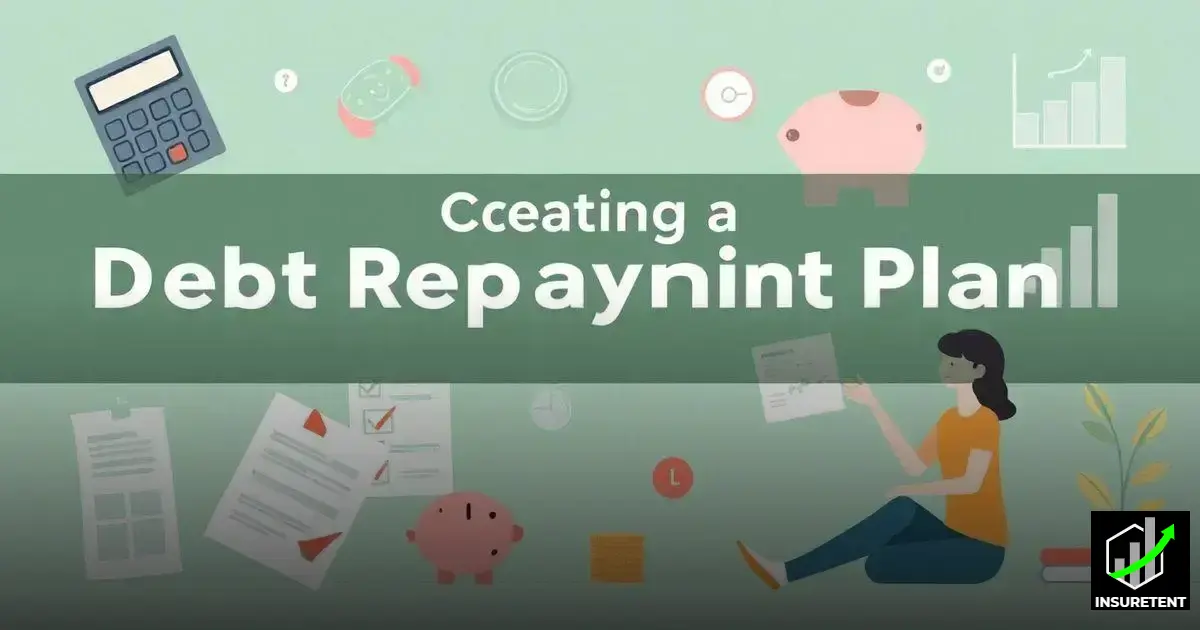Effective debt repayment strategies are essential for improving financial health and achieving long-term stability. Managing debt wisely not only helps reduce financial stress but also allows for better control over income and expenses. By adopting the right strategies, you can gradually work towards becoming debt-free.
Understanding how to prioritize debts, choose suitable repayment methods, and avoid common financial pitfalls is key to a successful debt repayment plan. Techniques such as the snowball and avalanche methods can help structure repayments effectively, ensuring progress while maintaining motivation.
What are the most effective debt repayment strategies, and how can you apply them to your situation? Exploring proven techniques and expert advice will help you take charge of your finances and move closer to financial freedom.
Understanding Debt: Types and Implications
When considering Debt Repayment, it’s essential to understand the different types of debt and their effects on your financial health. The two main categories are secured and unsecured debt, each with unique implications on how you approach Debt Repayment.
Secured debt, backed by collateral such as a house or car, often comes with lower interest rates. However, failing to meet payments can result in the loss of these assets. On the other hand, unsecured debt, like credit cards and personal loans, does not require collateral but typically carries higher interest rates. Managing Debt Repayment effectively means knowing how to handle both types responsibly.
Prioritizing Debt Repayment based on interest rates and urgency is crucial for maintaining financial stability. Whether using structured repayment methods or seeking professional financial advice, making informed decisions about Debt Repayment ensures a path toward long-term financial health and freedom.
Creating a Debt Repayment Plan

Creating a debt repayment plan is essential for managing your finances effectively. Start by listing all your debts, including balances and interest rates. This gives you a clear view of what you owe. Prioritising your debts can help you decide whether to use the debt snowball method or the debt avalanche method. The snowball method focuses on paying off the smallest debts first, which can provide emotional wins. In contrast, the avalanche method tackles high-interest debts, saving you more money in the long run.
Next, you should create a monthly budget that includes your necessary expenses, savings, and debt repayments. Identify areas where you can cut back, so you can allocate more funds towards paying off debt. It’s also vital to set realistic goals and timelines, as this will help you stay motivated.
Don’t forget to review your plan regularly. Life changes, and your financial situation may shift. Adjust your repayment plan as necessary to stay on track. Additionally, consider seeking support from financial advisors or credit counselling services, especially if you feel overwhelmed.
Snowball vs Avalanche: Which Method Works Best?
The snowball and avalanche methods are two popular strategies for paying off debt effectively. The debt snowball method involves paying off the smallest debts first, which can provide quick wins and motivate you to continue your repayment journey. This method is great for those who need encouragement and tangible progress as they see debts eliminated one by one.
On the other hand, the debt avalanche method prioritises higher-interest debts, aiming to save you money in the long run. By focusing on these debts first, you reduce the overall amount of interest paid, which can lead to quicker repayment of larger debts over time. This method is best for those who are disciplined and can stay motivated even without immediate results.
Both strategies have their merits, and choosing the right one depends on your personal financial situation and psychological needs. Some individuals may prefer the quick rewards of the snowball method, while others may find the cost-saving aspect of the avalanche method more appealing. Ultimately, whichever method you choose, the key is to remain consistent and committed to your debt repayment journey.
The Importance of Budgeting in Debt Repayment

Budgeting is one of the most important skills for effective debt repayment. A well-structured budget allows you to see your income and expenses clearly, which can help you prioritise your debt payments. First, track your monthly income from all sources. This includes your salary, side jobs, or any other incoming funds.
Next, list all your monthly expenses, such as rent, utilities, groceries, and minimum debt payments. Be honest and thorough so that you understand where your money goes. Subtract your total expenses from your income to see how much is left for debt repayment.
Afterwards, allocate specific amounts towards each debt. This helps ensure you are making progress. In addition, try to find areas to cut back on non-essential spending. For instance, consider dining out less frequently or cancelling unused subscriptions.
Lastly, review your budget regularly to track your progress. Adjust as necessary to ensure you stay on target. By sticking to a budget, you not only manage your debts effectively but also build a healthier financial future.
Common Mistakes to Avoid When Repaying Debt
When repaying debt, many people make common mistakes that can hinder their progress. One significant mistake is ignoring the interest rates. Focus on paying off high-interest debts first, as they cost you the most over time. This is crucial for effective debt management.
Another mistake is not having a budget. Without a budget, it’s easy to lose track of spending. Create a monthly budget to allocate funds specifically for debt repayment, which will keep you accountable.
Failing to make minimum payments on time is another error to avoid. This can lead to late fees and can damage your credit score. Always ensure you make at least the minimum payments to keep your account in good standing.
People also sometimes underestimate the importance of emergency savings. While repaying debt is crucial, having a small emergency fund can prevent you from going back into debt when unexpected expenses arise.
Lastly, not seeking help when needed can be a big mistake. If you’re struggling, consider reaching out to a financial advisor or credit counselling service. They can provide guidance tailored to your situation.
Seeking Professional Help for Debt Management

Seeking professional help for debt management can be a smart decision for individuals struggling with financial challenges. Financial advisors and credit counsellors have the expertise to guide you through the complexities of debt. Their personalised strategies help create a realistic plan to regain financial stability. Choosing a reputable, accredited credit counselling service ensures that you receive reliable advice without hidden agendas.
During consultations, professionals will assess your income, expenses, and outstanding debts to develop a practical budget and payment plan. This structured approach can reduce financial stress and provide a clearer path to debt recovery. Additionally, credit counsellors can negotiate with creditors on your behalf, potentially securing lower interest rates or more manageable payment terms.
Honesty and transparency about your financial situation are crucial throughout the process. Seeking professional help is not a sign of weakness but a proactive step towards financial improvement. With the right support and commitment, you can successfully manage your debt and build a more secure financial future.
Taking Control of Your Debt: A Path to Financial Freedom
Effective debt repayment strategies are essential for achieving financial stability. By understanding the types of debt and their implications, you can create a tailored repayment plan that suits your needs.
Utilising methods such as the snowball and avalanche approach, alongside strict budgeting, can significantly aid in managing your debts. It is also crucial to avoid common pitfalls, such as missing payments and overlooking interest rates.
Furthermore, seeking professional help can provide valuable insights, making the process less overwhelming. Remember that taking control of your finances is a journey, and each step you take brings you closer to financial freedom.
Check out our article on Payday Loans to understand how they work and the potential risks involved before considering them.
